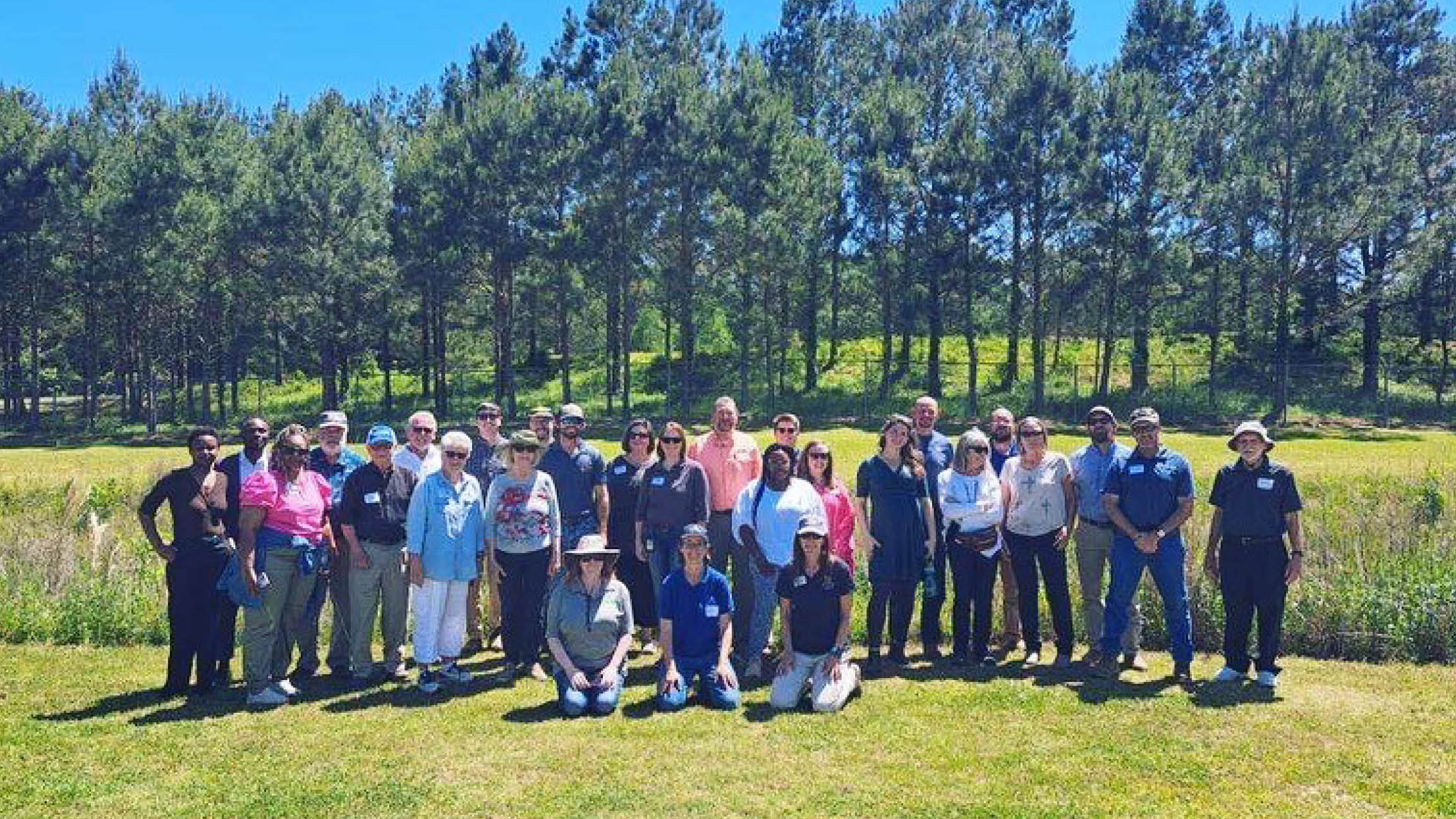On April 20, 2023, the Auburn University Water Resources Center (AUWRC) hosted a workshop titled: Designing Bioretention – How cities in Alabama are designing, installing, and funding green infrastructure projects. This workshop brought together regional partners from the City of Auburn, City of Opelika, and Auburn University to discuss how they designed and funded innovative stormwater practices with a focus on bioretention. The workshop took a “learn with us” approach to designing and installing bioretention, encouraging other municipalities to consider green infrastructure practices as a way to manage and improve stormwater.
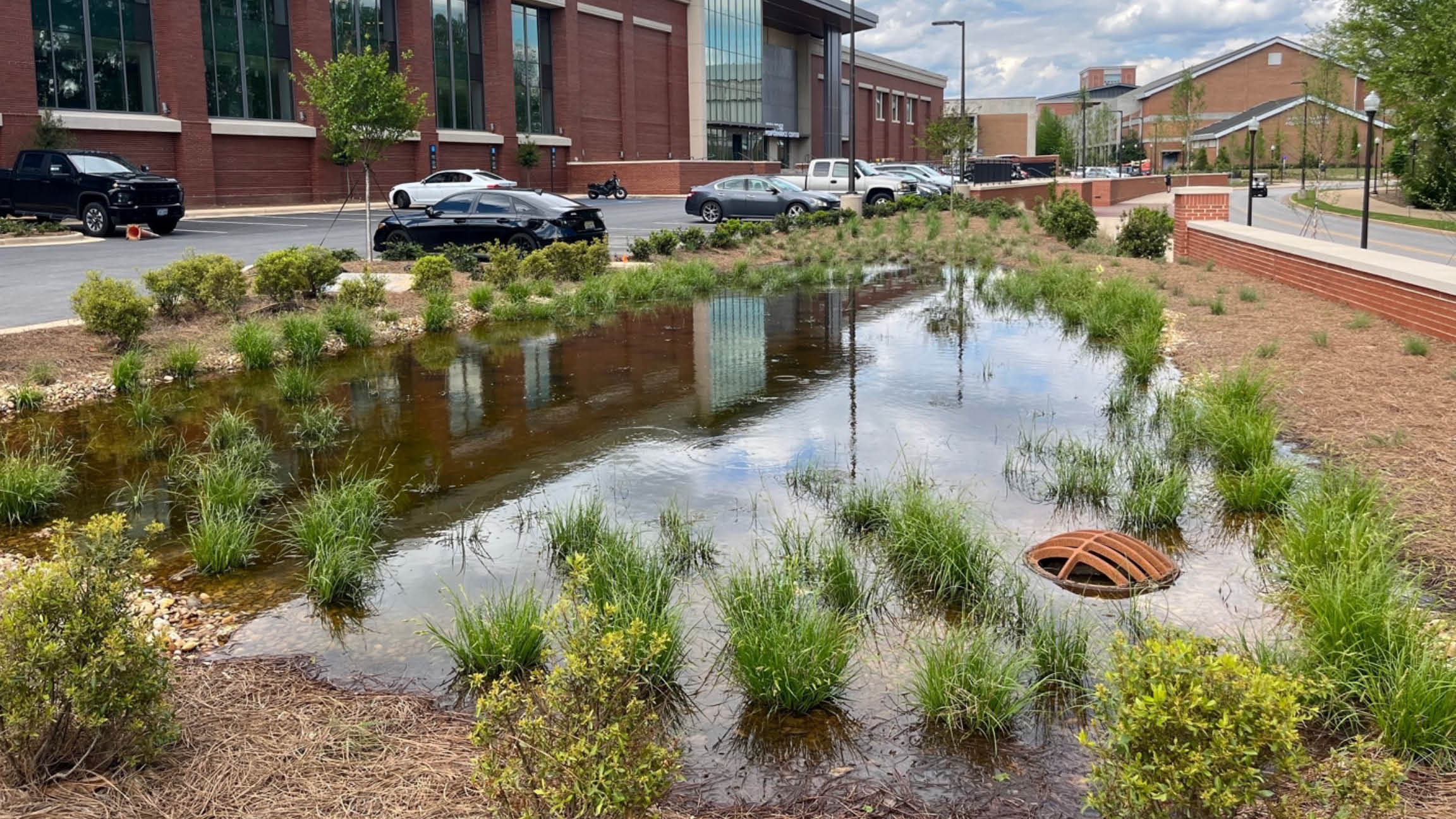
Example of a bioretention cell in use on Auburn University Campus. Photo Credit: Judd Langham
Bioretention areas are shallow depressions filled with sandy soil, topped with a thick layer of mulch, and planted with dense vegetation. They use soil, plants, and microbes to treat stormwater before it is infiltrated or discharged into a local waterway. You’ve likely seen bioretention cells in parking lots or on the sides of streets, but you may have not been aware that these stormwater practices help reduce flooding and pollution.
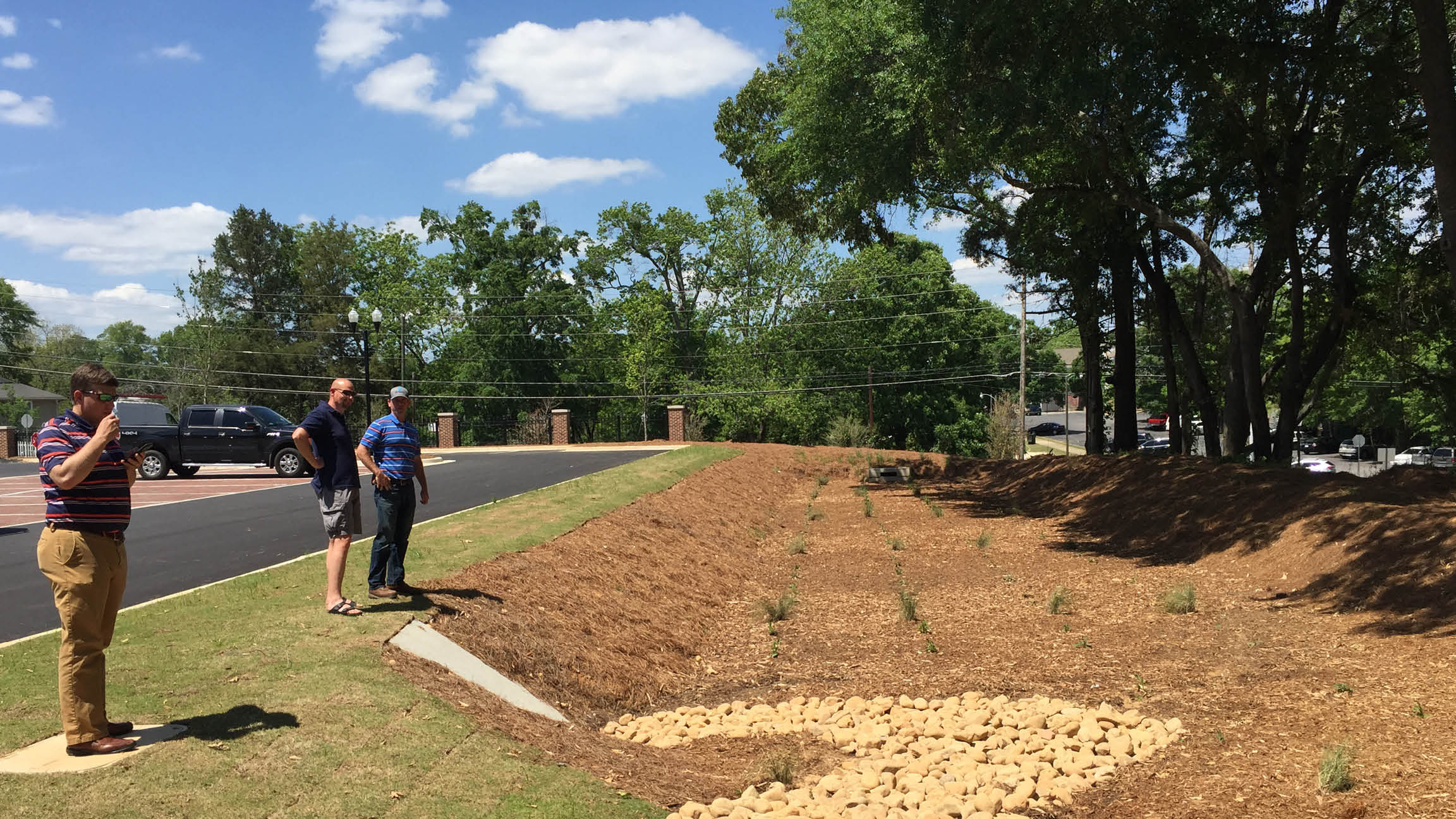
An example of a newly designed bioretention cell in Auburn, Alabama. Photo Credit: Eve Brantley
The workshop, held on the Auburn University Campus, featured case studies from the City of Auburn, the City of Opelika, and Auburn University, followed by a site visit to Auburn’s H.C. Morgan Water Pollution Control Facility. Participants at the Designing Bioretention Workshop were wide ranging, including municipal employees from across the state (planners and engineers), environmental consultants, riverkeepers and environmental nonprofits, master gardeners, Alabama Soil and Water Conservation representatives, ADEM, and more.
This workshop was part of a larger grant initiative between the City of Auburn and local partners. The AUWRC, the AU Bee Laboratory, Lee County Girl Scouts, and Westervelt Ecological Resources have all partnered with the City of Auburn on a National Fish and Wildlife Foundation Five Star grant tilted, Leveraging Infrastructure Funding to Promote Stewardship in Auburn, AL. Auburn was the only community in Alabama to receive a NFWF Five Star grant this year.
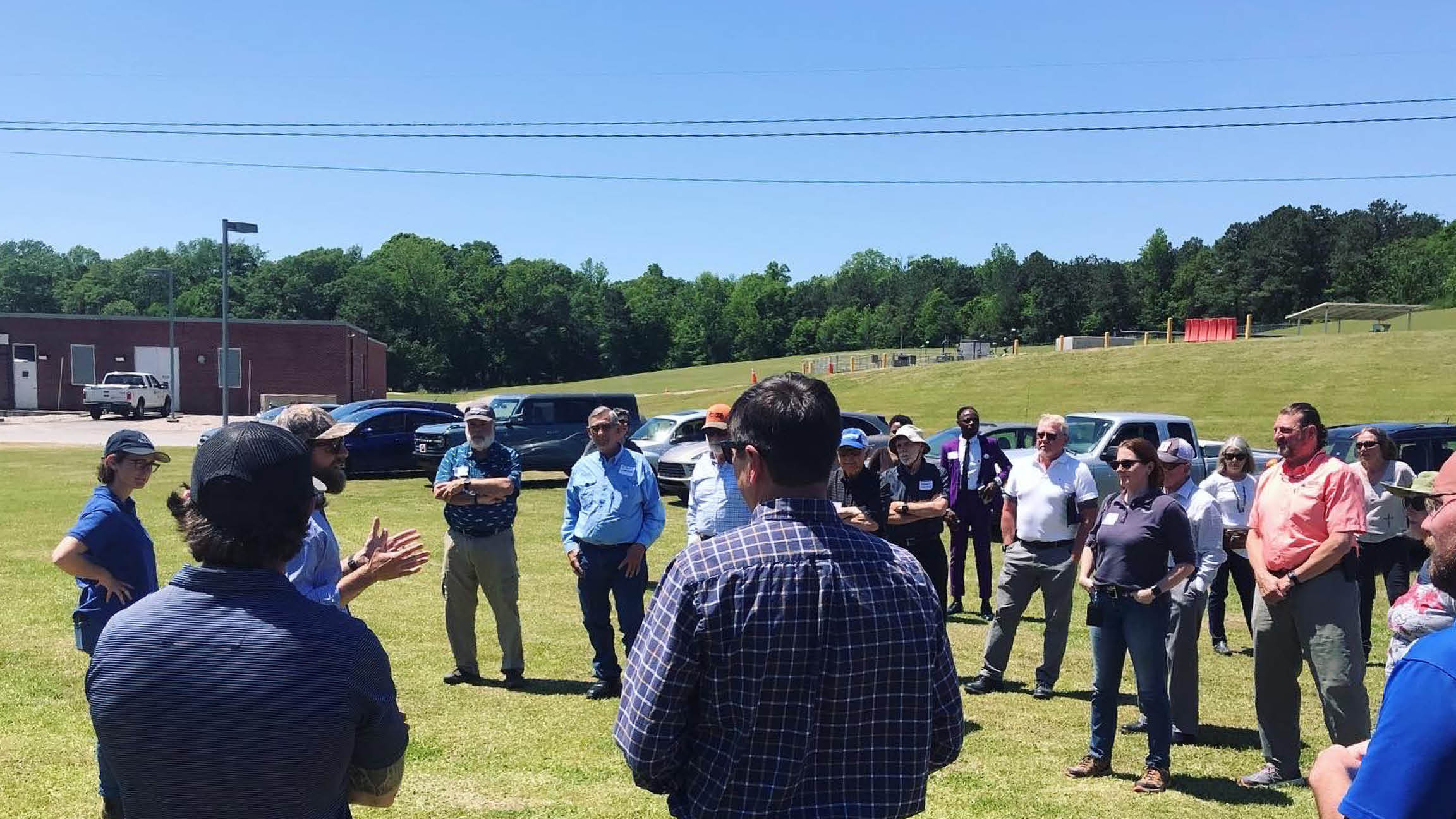
Dusty Kimbrow and Anne Randle with the City of Auburn give a tour of bioretention plans at the H.C. Morgan Facility. Photo Credit: Laura Cooley
The National Fish and Wildlife Five Star funding focuses on projects that can improve water quality and protect species in coastal and wetland habitats as well as rivers and creeks, primarily in more urban environments.
The grant will support a project at the city’s H.C. Morgan Water Pollution Control Facility, which is in the Parkerson Mill Creek watershed. Stormwater from the facility flows into Parkerson Mill Creek. The city plans to build new bioswales at strategic locations to help hold and filter this stormwater before it enters the creek. The AUWRC’s programs, Alabama Watershed Stewards and Alabama Water Watch, will offer public workshops to build awareness and provide lessons for residents about stormwater management, water quality monitoring and related topics.
Be sure to subscribe to our newsletter to hear more about upcoming workshops this fall.
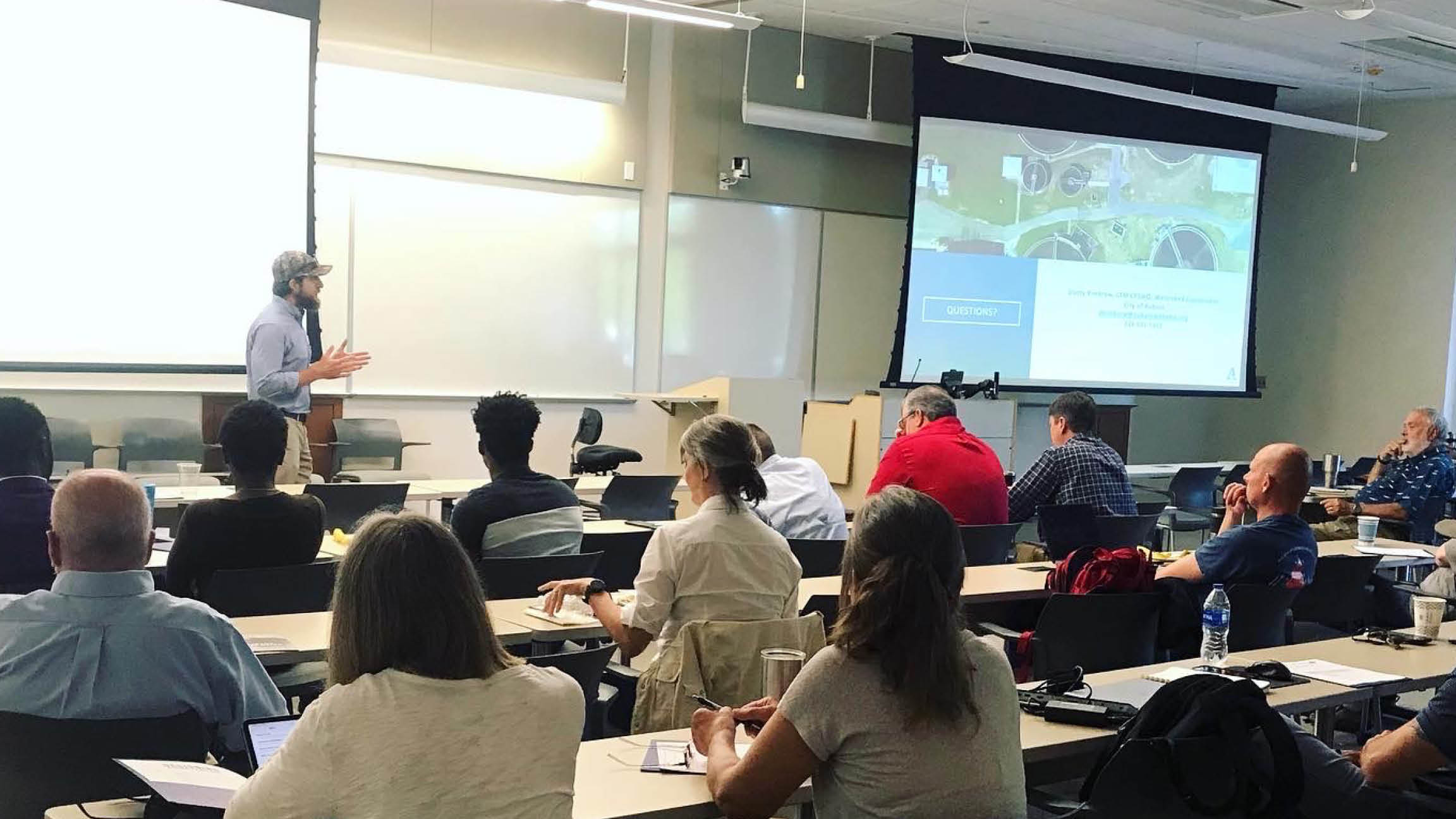
Dusty Kimbrow with the City of Auburn presents a case study on bioretention cell design. Photo Credit: Laura Bell Cooley

